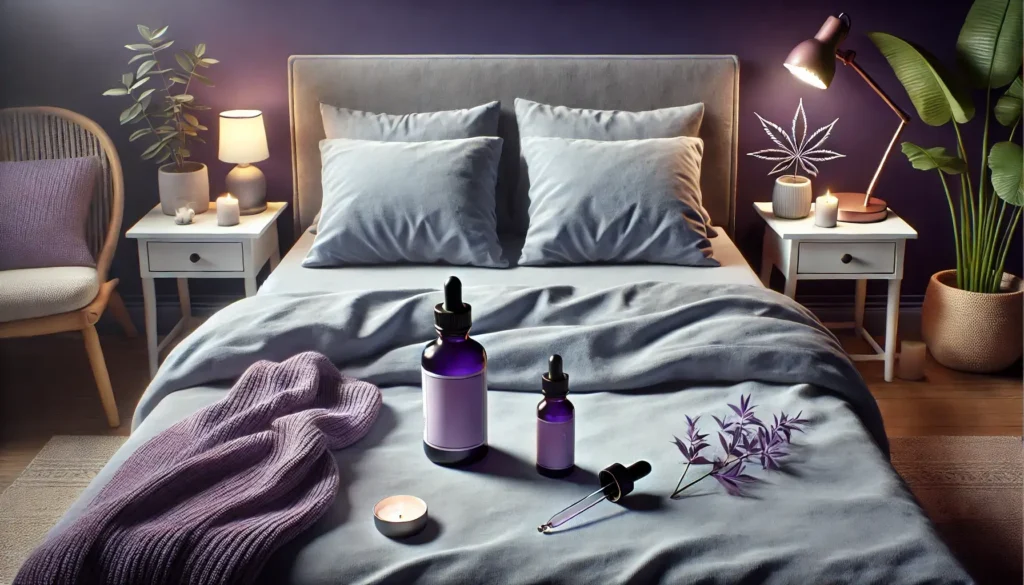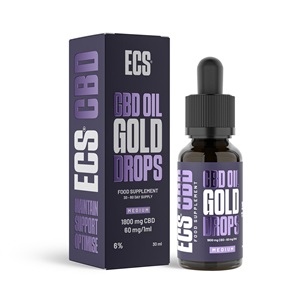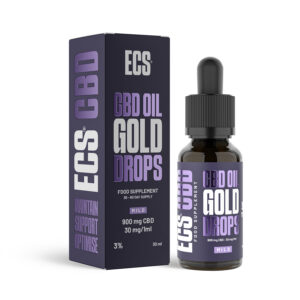
Struggling with sleepless nights can be incredibly frustrating, leaving you feeling drained and irritable during the day. Many people are now turning to CBD as a natural remedy to help combat insomnia and achieve better sleep. But the question remains: how much CBD for insomnia is the right amount? In this guide, we will delve into the optimal dosages, factors to consider, and practical tips to find the best CBD regimen for a restful night’s sleep. Whether you’re new to CBD or looking to fine-tune your current routine, this comprehensive guide aims to offer clear and practical advice to help you make informed decisions.

Insomnia is a sleep disorder that makes it difficult for individuals to fall asleep, stay asleep, or achieve restorative sleep. This condition can be acute, lasting for a few nights, or chronic, persisting for months or even years. Common symptoms include difficulty falling asleep, waking up frequently during the night, waking up too early, and feeling tired upon waking. Insomnia can be triggered by stress, anxiety, depression, poor sleep habits, and medical conditions. The impact of insomnia extends beyond the night, often resulting in daytime fatigue, irritability, and difficulty concentrating. Understanding the root cause of insomnia is crucial for finding effective treatments. While traditional methods include cognitive behavioural therapy and medication, many people are exploring alternative treatments like CBD to address their sleep issues. But how much CBD for insomnia is required to see results? Let’s explore this in detail.
CBD, or cannabidiol, is a compound derived from the cannabis plant, celebrated for its potential health benefits without the psychoactive effects associated with THC. Many people are turning to CBD as a natural remedy to alleviate various ailments, including insomnia. CBD interacts with the body’s endocannabinoid system, which plays a role in regulating sleep, mood, and other functions. By influencing this system, CBD may help to reduce anxiety and promote relaxation, making it easier for individuals to fall asleep and stay asleep. Unlike traditional sleep medications, CBD is non-habit forming and has a lower risk of adverse side effects. However, the effectiveness of CBD can vary from person to person, and finding the right dosage is crucial. This raises the question: how much CBD for insomnia is needed to achieve restful sleep? Understanding this is key to incorporating CBD into your sleep routine effectively.
Scientific research into CBD’s effects on insomnia is still in its early stages, but initial findings are promising. Several studies suggest that CBD may help improve sleep quality by addressing the underlying causes of insomnia, such as anxiety and chronic pain. For instance, a study published in The Permanente Journal in 2019 found that CBD improved sleep scores in 66% of participants within the first month. Another research project highlighted in the Journal of Clinical Pharmacology demonstrated CBD’s potential to influence the sleep-wake cycle positively. While these findings are encouraging, it’s essential to note that more extensive, long-term studies are needed to establish definitive results. Additionally, the ideal dosage of CBD for insomnia can vary widely among individuals, making personalised approaches crucial. Understanding the scientific evidence can help you make informed decisions about incorporating CBD into your sleep regimen, but always consult with a healthcare professional for tailored advice.
When considering how much CBD for insomnia might be effective, starting with a low dosage is advisable. This approach allows individuals to monitor their body’s response to CBD and adjust as needed. A common recommendation is to begin with a dose of 10-20 milligrams per day. This conservative starting point provides insight into how CBD affects your sleep without overwhelming your system. It’s important to maintain this initial dosage for at least a week, observing any changes in sleep patterns or overall wellbeing. If necessary, gradually increase the dosage in small increments until the desired effect is achieved. This method helps minimise potential side effects and ensures a safe experience. Remember, individual responses to CBD can vary, so patience and careful monitoring are key. Consulting with a healthcare professional can also provide additional guidance tailored to your specific needs, ensuring a safe and effective CBD regimen for insomnia.
Determining the right amount of CBD for insomnia isn’t a one-size-fits-all solution. Several factors can influence the optimal dosage for each individual. Body weight is a significant consideration; generally, individuals with higher body weight may require more CBD to feel its effects. The severity of insomnia symptoms also plays a role; those with more pronounced symptoms might need a higher dosage. Additionally, individual body chemistry, including metabolism and the presence of any underlying health conditions, can affect how CBD is processed and utilised by the body. The method of CBD consumption—whether it’s tinctures, capsules, or edibles—also impacts the absorption rate and overall effectiveness. Finally, personal sensitivity to CBD should not be overlooked, as some individuals may experience the desired effects with a lower dosage. It’s essential to consider these factors and adjust accordingly to find the most effective CBD dosage for achieving a restful night’s sleep.
The question of how much CBD for insomnia is optimal varies from person to person. While there is no universally prescribed dosage, general guidelines can help you find a starting point. A dosage range of 25-75 milligrams of CBD per day is commonly suggested for sleep-related issues, though some may find relief with as little as 10-20 milligrams. For those with severe insomnia or higher tolerance, dosages can extend up to 160 milligrams, but it’s crucial to approach such amounts with caution. It’s advisable to start at the lower end of the spectrum and increase gradually, gauging how your body responds over time. This gradual approach helps in identifying the most effective dosage while minimising potential side effects. Keep in mind the importance of monitoring your sleep patterns and overall wellbeing to assess the impact of CBD. Consulting a healthcare professional can provide additional guidance tailored to your unique needs.

CBD oils and tinctures are among the most popular methods of consumption, prized for their versatility and rapid absorption. These liquid forms of CBD are typically administered sublingually, meaning under the tongue, where they are held for 30 to 60 seconds before swallowing. This method allows CBD to enter the bloodstream quickly, providing faster relief compared to edibles or capsules. Oils and tinctures also offer precise dosing, as they often come with a dropper that allows users to measure their dosage accurately. This precision is beneficial for those who wish to adjust their intake incrementally to find the right amount of CBD for insomnia. Moreover, oils and tinctures can be easily incorporated into daily routines, whether taken directly or added to food and beverages. They are available in various flavours, making them a palatable option for many users. However, it’s essential to choose high-quality products from reputable sources to ensure safety and effectiveness.
Capsules and edibles present a convenient and discreet option for consuming CBD, appealing to those who prefer not to taste the oil or tincture. These products offer a pre-measured dose of CBD, eliminating the guesswork involved in determining how much CBD for insomnia to take. This consistency is particularly useful for maintaining a regular regimen. However, capsules and edibles typically take longer to produce effects, as they must pass through the digestive system before entering the bloodstream. This delay means that the effects might not be felt for 30 minutes to 2 hours, depending on individual metabolism and the specific product used. Despite the slower onset, the effects of capsules and edibles can last longer, making them suitable for those who need prolonged relief. As with any CBD product, it’s important to start with a low dose and gradually adjust as needed. Always opt for products from reputable brands to ensure quality and potency.
Vaping and smoking CBD provide the fastest method of delivery due to the direct absorption of CBD into the bloodstream through the lungs. This rapid onset makes it an appealing option for those seeking immediate relief from insomnia symptoms. However, the effects of vaping and smoking tend to be shorter-lived compared to other methods, which may require more frequent dosing throughout the night. While vaping CBD involves using a vape pen or e-cigarette with CBD-infused liquids, smoking involves the use of CBD-rich hemp flowers. It’s crucial to consider the potential health risks associated with inhaling smoke or vapour, including respiratory issues. For those concerned about these risks, alternative methods such as oils, tinctures, capsules, or edibles may be preferable. As always, choosing high-quality products from reputable brands is essential to ensure safety and effectiveness. Consulting with a healthcare professional can provide further guidance on whether vaping or smoking CBD is a suitable option for managing insomnia.

While CBD is generally considered safe and well-tolerated, some individuals may experience side effects, particularly when starting out or adjusting dosages. Common side effects include dry mouth, drowsiness, and changes in appetite or weight. Some users might also experience diarrhoea or fatigue. These effects are usually mild and tend to diminish as the body adjusts to CBD. It’s important to monitor how your body responds, especially when determining how much CBD for insomnia is effective for you. Starting with a low dosage and gradually increasing can help minimise the likelihood of adverse effects. Additionally, CBD can interact with certain medications, potentially affecting their efficacy. Therefore, if you are taking other medications or have underlying health conditions, consulting a healthcare professional before starting CBD is advisable. Awareness of these potential side effects and precautions can help ensure a safe and beneficial experience when using CBD for insomnia.
CBD has the potential to interact with various medications, which is an important consideration for anyone looking to incorporate it into their insomnia treatment plan. One of the primary concerns is how CBD can affect the metabolism of drugs processed by the liver enzymes, particularly the cytochrome P450 family. This interaction can alter the levels of medications in the bloodstream, potentially enhancing or reducing their effects. For instance, CBD may affect blood thinners, leading to an increased risk of bleeding, or it might influence the efficacy of antiepileptic drugs. Therefore, it’s crucial to discuss your use of CBD with a healthcare professional, especially if you are taking prescription medications. They can offer guidance on potential interactions and help adjust dosages if necessary. Being aware of these interactions and taking appropriate precautions ensures the safe and effective use of CBD for insomnia, without compromising other treatments you may be receiving.
When using CBD for insomnia, prioritising safety and quality is paramount. The burgeoning CBD market can be confusing, with products varying widely in terms of purity and potency. To ensure you’re getting a high-quality product, look for items that have been third-party tested. These tests confirm the concentration of CBD and check for contaminants like heavy metals, pesticides, and residual solvents. Reputable brands will provide certificates of analysis (COAs) from accredited laboratories. Additionally, consider the source of the CBD. Organically grown hemp is preferable as it reduces the risk of exposure to harmful chemicals. Opt for full-spectrum or broad-spectrum CBD products, as they contain additional beneficial compounds found in the hemp plant, potentially enhancing CBD’s effects. Always follow the recommended dosages and consult with a healthcare professional if you have any concerns. Taking these precautions helps ensure a safe and effective experience when using CBD to improve your sleep.
Monitoring your sleep patterns is crucial when personalising your CBD routine for insomnia. Keeping a sleep diary can help track various factors such as the time you go to bed, how long it takes to fall asleep, number of awakenings during the night, and overall sleep quality. Apps and wearable devices designed to monitor sleep can also provide valuable insights. By documenting these aspects, you can observe any changes or improvements after introducing CBD into your routine. This data helps in adjusting the dosage more precisely to meet your needs. If you notice consistent improvement in your sleep patterns, you may have found the optimal dosage. Conversely, if there are no changes or negative effects, you might need to adjust the amount or timing of your CBD intake. Regularly reviewing and analysing your sleep patterns ensures that your CBD regimen is tailored for maximum effectiveness, leading to a more restful night’s sleep.
Adjusting your CBD dosage is essential for finding the most effective amount to combat insomnia. Start with a low dosage and gradually increase it, paying close attention to how your body responds. Incremental adjustments allow you to find the sweet spot where the benefits of CBD are maximised without causing unwanted side effects. It might be helpful to increase the dosage by 5-10 milligrams at a time and maintain each new level for a few days to a week before making further changes. During this period, monitor your sleep patterns and overall wellbeing. If you notice significant improvements in sleep quality and duration, you may have found your optimal dosage. However, if side effects occur or no benefits are observed, it might be necessary to lower the dose or consider a different method of consumption. Consulting with a healthcare professional can provide additional guidance, ensuring your CBD routine is both effective and safe.
Consulting a healthcare professional is advisable when incorporating CBD into your routine for insomnia, particularly if you’re new to CBD or have underlying health conditions. A professional can provide personalised advice on dosage and help identify potential interactions with other medications you may be taking. It’s also beneficial to seek guidance if you’re unsure about the quality or efficacy of different CBD products. If you’ve been trying CBD for a period without noticeable improvement in your sleep patterns, or if you experience persistent side effects, a healthcare provider can offer alternative strategies or adjustments to your regimen. Additionally, if your insomnia is linked to more complex health issues like anxiety or chronic pain, professional input can ensure a comprehensive approach to treatment. Always choose a practitioner knowledgeable about CBD and its effects to receive the most accurate and helpful advice. This ensures your CBD routine is safe, effective, and tailored to your individual needs.